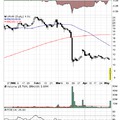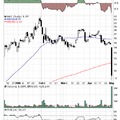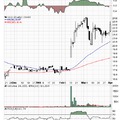Linda Bradford Raschke - The Mental Aspect of Trading
Címkék: turtle mental trading
2012.04.07. 20:03
Many traders quickly come to acknowledge that despite being familiar with winning strategies, systems, and money management techniques, trading success is dependent on your psychological state of mind. If you’re a trader just starting out, where do you find the initial confidence to pull the trigger? How do you deal with the down times without digging yourself deeper into the hole? If you are in a hole, how do you work your way back out? How do experienced traders push through the ceiling of profitability that caps their initial trading years and make a truly fabulous living?
Trading is a performance-oriented discipline. Stress and mental pressures can affect your ability to function and impact your bottom line. Much of what has been learned about achieving peak performance in both business and sports can be applied to trading. But before looking at some of these factors, let’s first examine the ways that trading differs from other businesses.
- Intellect has nothing to do with your ability as a trader. Success is not a function of how smart you are or how much you have applied yourself academically. This is hard to accept in a society that puts a premium on intellect.
- There is no customer or client good will built up each day in your business. Customer relationships, traditionally important in American businesses, have little to do with a trader’s profitability. Each day is a clean slate.
- The traditionally 8-5 work ethic doesn’t apply in this business! A trader could sit in front of a screen all day waiting for a recognizable pattern to occur and have nothing happen. There is a temptation to take marginal trades just so a trader can feel like he’s doing something. There’s also the dilemma of putting in constant hours of research, having nothing to show for it, and not getting paid for the work done. Yet if a trader works too hard, he risks burn- out. And what about those months where 19 out of 20 days are profitable, but the trader gives it all back in one or two bad days? How can a trader account for his productivity in these situations?
- If you were to invest time, energy, and emotion into developing a business venture and backed out at the last minute, it would be considered a failure. However, you should be able to invest time and energy into researching a trading idea, and yet still be able to change your mind at the last minute. Market conditions change, and we cannot be expected to predict all the variables with foresight. Getting out of a bad trade with only a small loss should be considered a big success!
What IS the definition of a successful trader? He should feel good about himself and enjoy playing the game. You can make a few small trades a year as a hobby, generate some very modest profits, and be quite successful because you had fun. There are also aggressive traders who have had big years, but ultimately blow-out, ruin their health or lead miserable lives from all the stress they put themselves under.
Principles of Peak Performance
The first principle of peak performance is to put fun and passion first. Get the performance pressures out of your head. Forget about statistics, percentage returns, win/loss ratios, etc. Floor-traders scratch dozens of trades during the course of a day, but all that matters is whether they’re up at the end of the month.
Don’t think about TRYING to win the game – that goes for any sport or performance-oriented discipline. Stay involved in the process, the technique, the moment, the proverbial here and now.! A trader must concentrate on the present price action of the market. A good analogy is a professional tennis player who focuses only on the point at hand. He’ll probably lose half the points he plays, but he doesn’t allow himself to worry about whether or not he’s down a set. He must have confidence that by concentrating on the techniques he’s worked on in practice, the strengths in his game will prevail and he will be able to outlast his opponent.
The second principle of peak performance is confidence. in yourself, your methodology, and your ability to succeed. Some people are naturally born confident. Other people are able to translate success from another area in their life. Perhaps they were good in sports, music, or academics growing up. There’s also the old-fashioned “hard work” way of getting confidence. Begin by researching and developing different systems or methodologies. Put in the hours of backtesting. Tweak and modify the systems so as to make them your own. Study the charts until you’ve memorized every significant swing high or low. Self-confidence comes from developing a methodology that YOU believe in.
Concentrate on the technical conditions. Have a clear game plan. Don’t listen to CNBC, your broker, or a friend. You must do your own analysis and have confidence in your game plan to be a successful trader.
Analyze the markets when they are closed. Your job during the day is to monitor markets, execute trades and manage positions. Traders should be like fighter pilots – make quick decisions and have quick reflexes. Their plan of attack is already predetermined, yet they must be ready to abort their mission at any stage of the game.
Just as you should put winning out of your mind, so should you put losing out of your mind – quickly. A bad trade doesn’t mean you’ve blown your day. Get rid of the problem quickly and start making the money back. It’s like cheating on a diet. You can’t undo the damage that’s been done. However, it doesn’t mean you’ve blown your whole diet. Get back on track and you’ll do fine.
For that matter, the better you are able to eliminate emotions from your day, the better off you will be. A certain amount of detachment adds a healthy dose of objectivity.
Trading is a great business because the markets close at the end of the day (at least some of them). This gives you a zero point from which to begin the next day – a clean slate. Each day is a new day. Forget about how you did the week before. What counts is how you do today!
Sometimes what will happen during the day comes down to knowing yourself. Are you relaxed or distracted? Are you prepared or not? If you can’t trade that day, don’t! – and don’t overanalyze the reasons why or why not. Is psychoanalyzing your childhood going to help your trading? Nonsense!
The third important ingredient for achieving peak performance is attitude. Attitude is how you deal with the inevitable adverse situations that occur in the markets. Attitude is also how you handle the daily grind, the constant 2 steps forward and 2 steps back. Every professional has gone through long flat times. Slumps are inevitable for it’s impossible to stay on top of your game 100% of the time. Once you’ve dug yourself out of a hole, no matter how long it takes, you know that you can do it again. If you’ve done something once, it is a repeatable act. That knowledge is a powerful weapon and can make you a much stronger trader.
Good trades don’t always work out. A good trade is one that has the probabilities in its favor, but that doesn’t mean that it will always work out. People who have a background in game theory understand this well. The statistics are only meaningful when looking at a string of numbers. For example, in professional football, not every play is going to gain yardage. What percentage of games do you need to win in order to make the playoffs? It’s a number much smaller than most of us are willing to accept in our own win/loss ratios!
Here is an interesting question: should you look at a trade logically or psychologically? In other words, should every trade stand on its own merits? Theoretically, yes, but in real life it doesn’t always work that way. A trader is likely to manage a position differently depending on whether the previous trade was a winner or a loser.
How does one know when to take profits on a good trade? You must ask yourself first how greedy do you want to be, or, how much money do you want to make? And also, does your pattern have a “perceived profit” or objective level? Why is it that we hear successful winning traders complain far more about getting out of good trades too soon than not getting out of bad trades soon enough? There’s an old expression: “Profits are like eels, they slip away.”
Successful traders are very defensive of their capital. They are far more likely to exit a trade that doesn’t work right away than to give it the benefit of the doubt. The best trades work right away!
OK. Realistically, every trader has made a stubborn, big losing trade. What do you do if you’re really caught in a pickle? The first thing is to offer a “prayer to the Gods”. This means, immediately get rid of half your position. Cut down the size. Right off the bat you are taking action instead of freezing up. You are reducing your risk, and you have shifted the psychological balance to a win-win situation. If the market turns around, you still have part of your position on. If it continues against you, your loss will be more manageable. Usually, you will find that you wished you exited the whole position on the first order, but not everyone is able to do this.
At an annual Market Technician’s conference, a famous trader was speaking and someone in the audience asked him what he did when he had terrible losing trades. He replied that when his stomach began to hurt, he’d “puke them at the lows along with everyone else.” The point is, everyone makes mistakes but sooner or later you’re going to have to exit that nasty losing position.
“Feel good” trades help get one back in the game. It’s nice to start the day with a winning scalp. It tends to give you more breathing room on the next trade. The day’s psychology is shifted in your favor right away. This is also why it’s so important to get rid of losing trades the day before. so you don’t have to deal with them first thing in the morning. This is usually when the choice opportunity is and you want to be ready to take advantage of it.
A small profitable scalp is the easiest trade to make. The whole secret is to get in and get out of the market as quickly as possible. Enter in the direction of the market’s last thrust or impulse. The shorter the period of time you are is the marketplace, the easier it is to make a winning trade. Of course, this strategy of making a small scalp is not substantial enough to make a living, but remember the object is to start the day out on the right foot.
If you are following a methodology consistently (key word), and making money, how do you make more money? You must build up the number of units traded without increasing the leverage. In other words, don’t try going for the bigger trade, instead, trade more contracts. It just takes awhile to build up your account or the amount of capital under management. Proper leverage can be the key to your success and longevity in this business. Most traders who run into trouble have too big a trade on. Size influences your objectivity. Your main object should be to stay in the game.
Most people react differently when they’re under pressure. They tend to be more emotional or reactive. They tense up and judgement is often impaired. Many talented athletes can’t cut it because they choke when the pressure’s on. You could be a brilliant analyst but a lousy trader. Consistency is far more important than brilliance. Just strive for consistency in what you do and let go of the performance expectations.
Master the Game
The last key to achieving mental mastery over the game is believing that you can actually do it. Everyone is capable of being a successful trader if they truly believe they can be. You must believe in the power of belief. If you’re a recluse skeptic or self-doubter, begin by pretending to believe you can make it. Keep telling yourself that you’ll make it even if it takes you five years. If a person’s will is strong enough, they will always find a way.
If you admit to yourself that you truly don’t have the will to win at this game, don’t try to trade. It is too easy to lose too much money. Many people think that they’ll enjoy trading when they really don’t. It’s boring at times, lonely during the day, mentally trying, with little structure or security. The markets are not a logical or fair playing ground. But there are numerous inefficiencies and patterns ready to be exploited, and there always will be.
A bejegyzés trackback címe:
Kommentek:
A hozzászólások a vonatkozó jogszabályok értelmében felhasználói tartalomnak minősülnek, értük a szolgáltatás technikai üzemeltetője semmilyen felelősséget nem vállal, azokat nem ellenőrzi. Kifogás esetén forduljon a blog szerkesztőjéhez. Részletek a Felhasználási feltételekben és az adatvédelmi tájékoztatóban.


